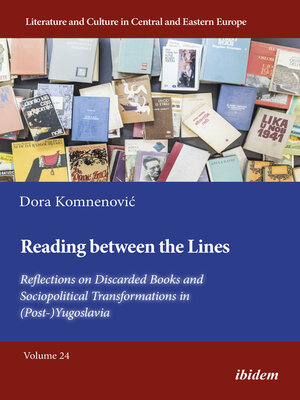Reading between the Lines
ebook ∣ Reflections on Discarded Books and Sociopolitical Transformations in (Post-)Yugoslavia · Literatur und Kultur im mittleren und östlichen Europa
By Dora Komnenovic

Sign up to save your library
With an OverDrive account, you can save your favorite libraries for at-a-glance information about availability. Find out more about OverDrive accounts.
Find this title in Libby, the library reading app by OverDrive.



Search for a digital library with this title
Title found at these libraries:
| Library Name | Distance |
|---|---|
| Loading... |
Every major socio-political change starts with some discarding. Suffice it to think about the heaps of rubbish consisting of old furniture, cars, busts of famous communist leaders, badges, and books on the streets of Eastern Europe in the fall/winter of 1989/1990. Among the institutions which have the greatest amount of experience with discarding are libraries: Counterintuitive as it may seem, libraries (but also museums and archives) regularly discard books as part of their job. In the wake of the collapse of communism in Europe, stock revision was needed in libraries, but did it unfold in a 'business as usual' fashion or was it a "bibliocide" (as it was labelled by some media in Croatia) or even "the biggest destruction of books in the post-war period" (as it was characterized by a German journalist)? When does a standard library practice start attracting public attention? What makes the Croatian case stand out?







